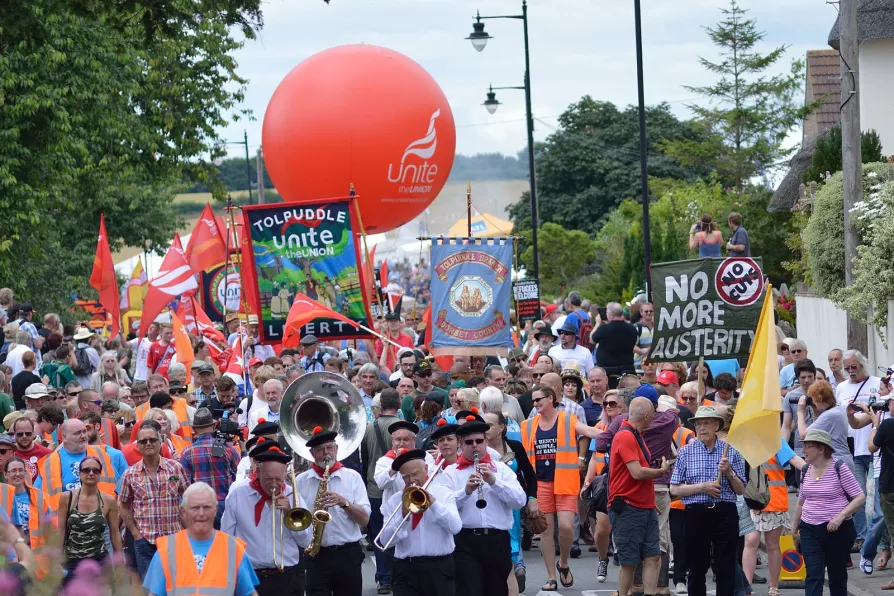Hundreds protested against the US-Israel attacks on Iran in Parliament Square on Saturday, fearing a wider conflagration and horrified by the targeting of young schoolchildren, writes LINDA PENTZ GUNTER

 Tolpuddle Martyrs' Rally in 2016
[Rwendland / Creative Commons]
Tolpuddle Martyrs' Rally in 2016
[Rwendland / Creative Commons]
THE Tolpuddle Martyrs, a group of agricultural labourers, were charged with taking an illegal oath 189 years ago. This was a promise of solidarity to each other in their struggle against landowners extracting every last drop of profit they could from the workers’ labour.
The Tolpuddle Martyrs’ arrest and deportation to Australia in 1834 was an early emblem of how the powerful would treat the free organisation of workers for centuries to come. Freedom of association and of assembly, the right to protest, the right to strike and freedom of speech have been a constant battle since.
And here we are, in 2023, fighting the same battles again. The government’s Strikes (Minimum Service Levels) Bill is in its final stages, and unamended, it will all but outlaw the right to strike — a right that has been severely restricted by a succession of anti-trade union laws over several decades.

ANSELM ELDERGILL examines the legal case behind this weekend’s Tolpuddle Martyrs’ Festival and the lessons for today

As the labour movement meets to remember the Tolpuddle Martyrs, MICK WHELAN, general secretary of train drivers’ union Aslef, says it’s an appropriate moment to remind the Labour government to listen to the trade unions a little more

It is only trade union power at work that will materially improve the lot of working people as a class but without sector-wide collective bargaining and a right to take sympathetic strike action, we are hamstrung in the fight to tilt back the balance of power, argues ADRIAN WEIR

RMT leader Eddie Dempsey's stark warning shook up a fringe meeting at the Scottish TUC










